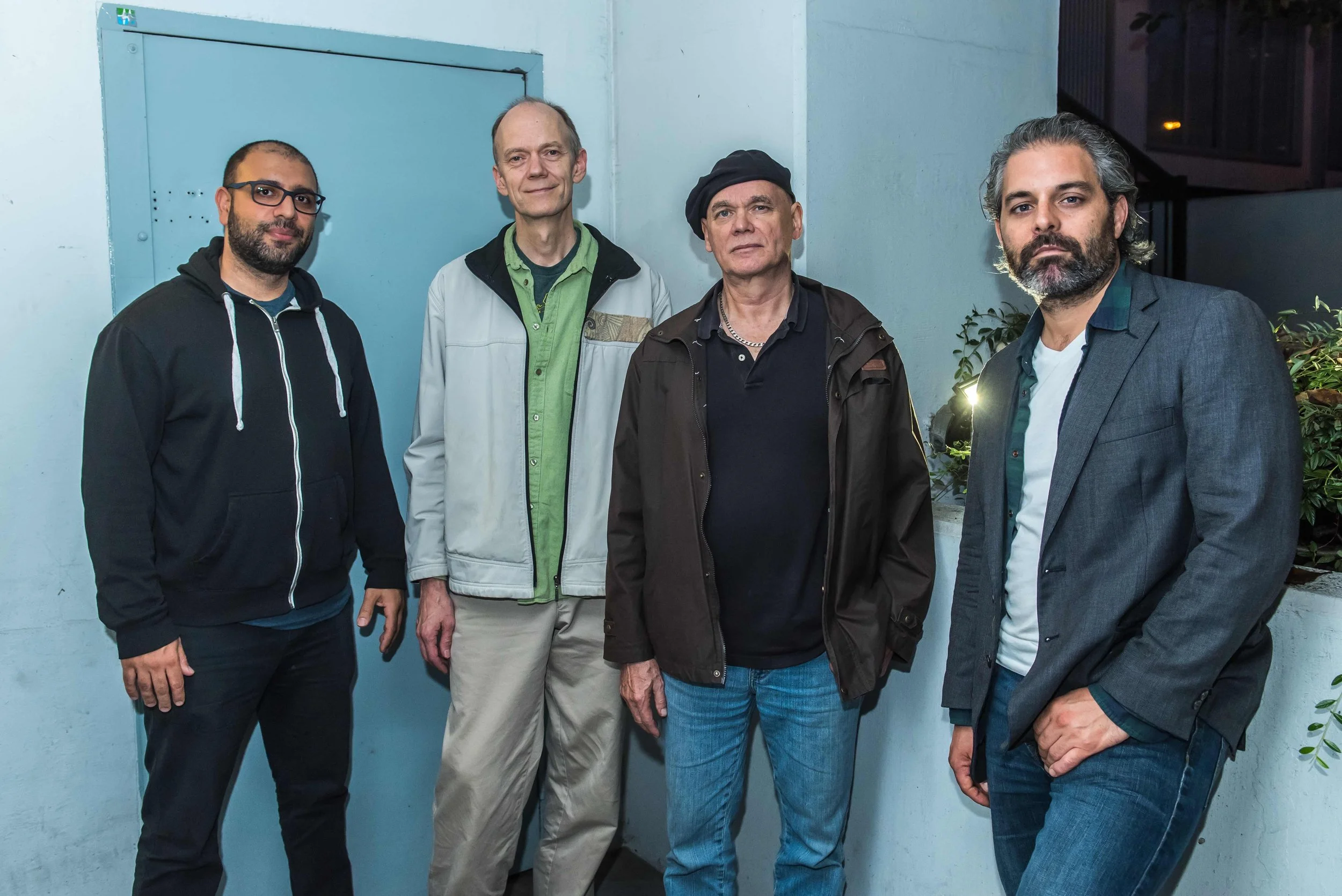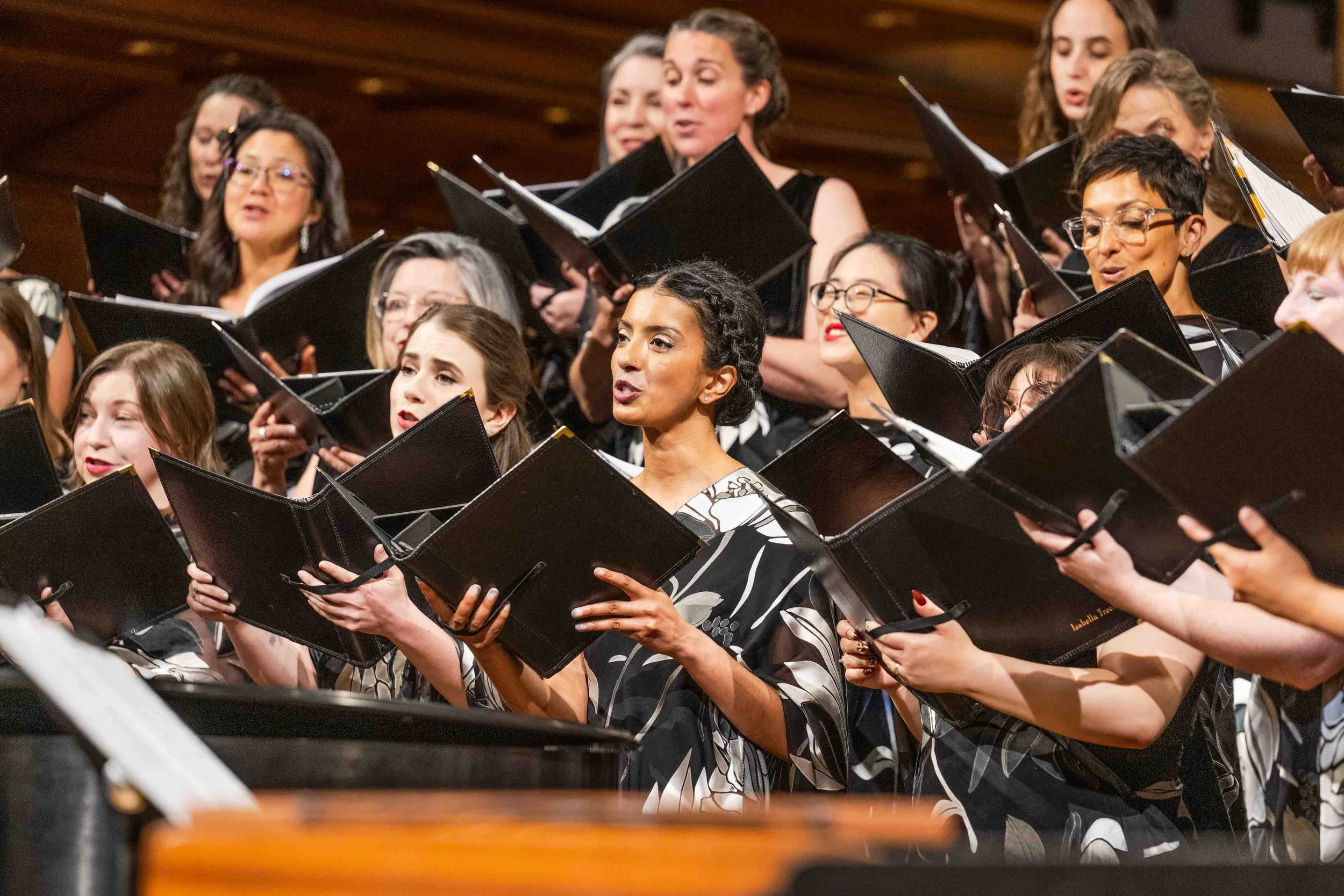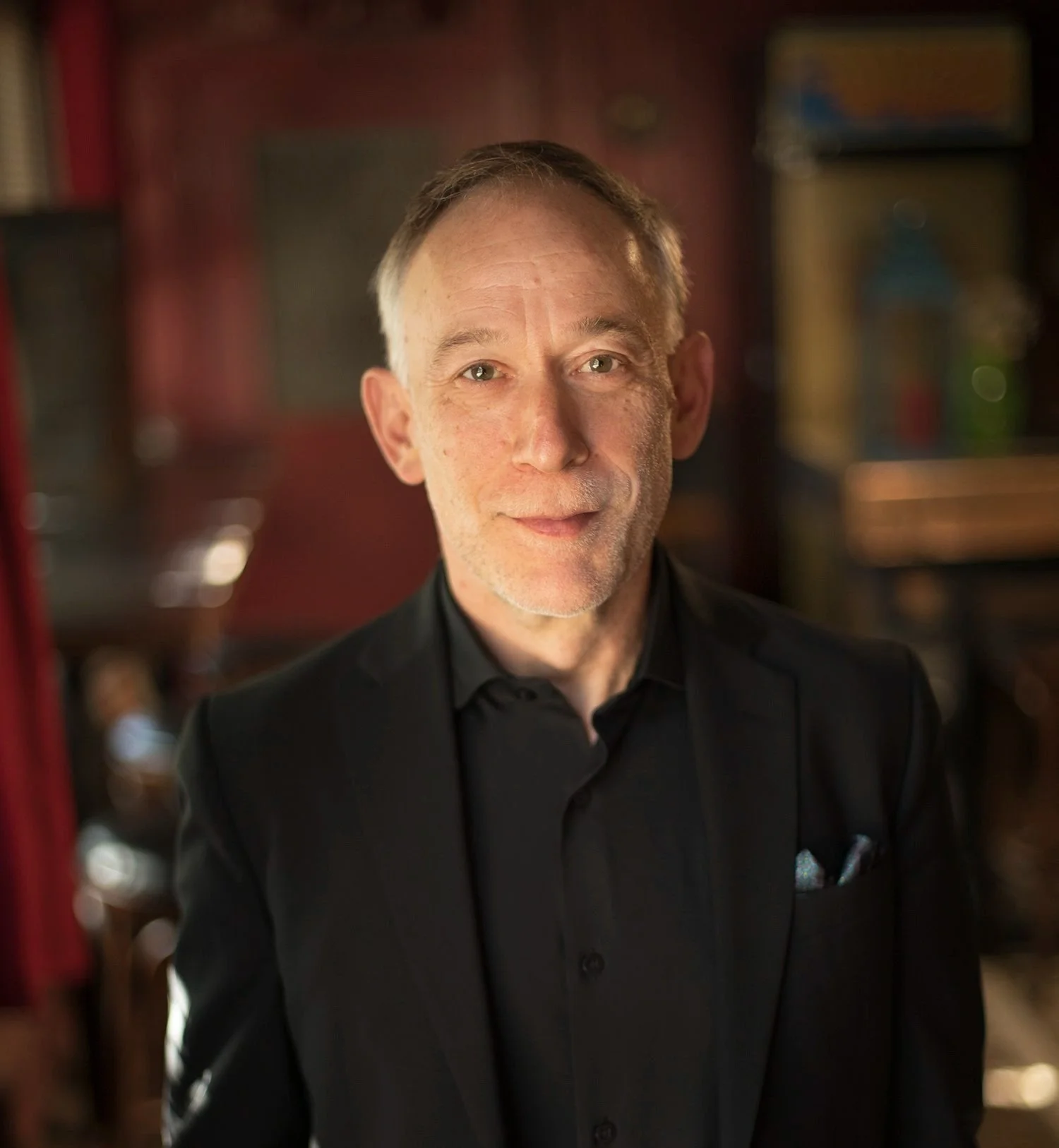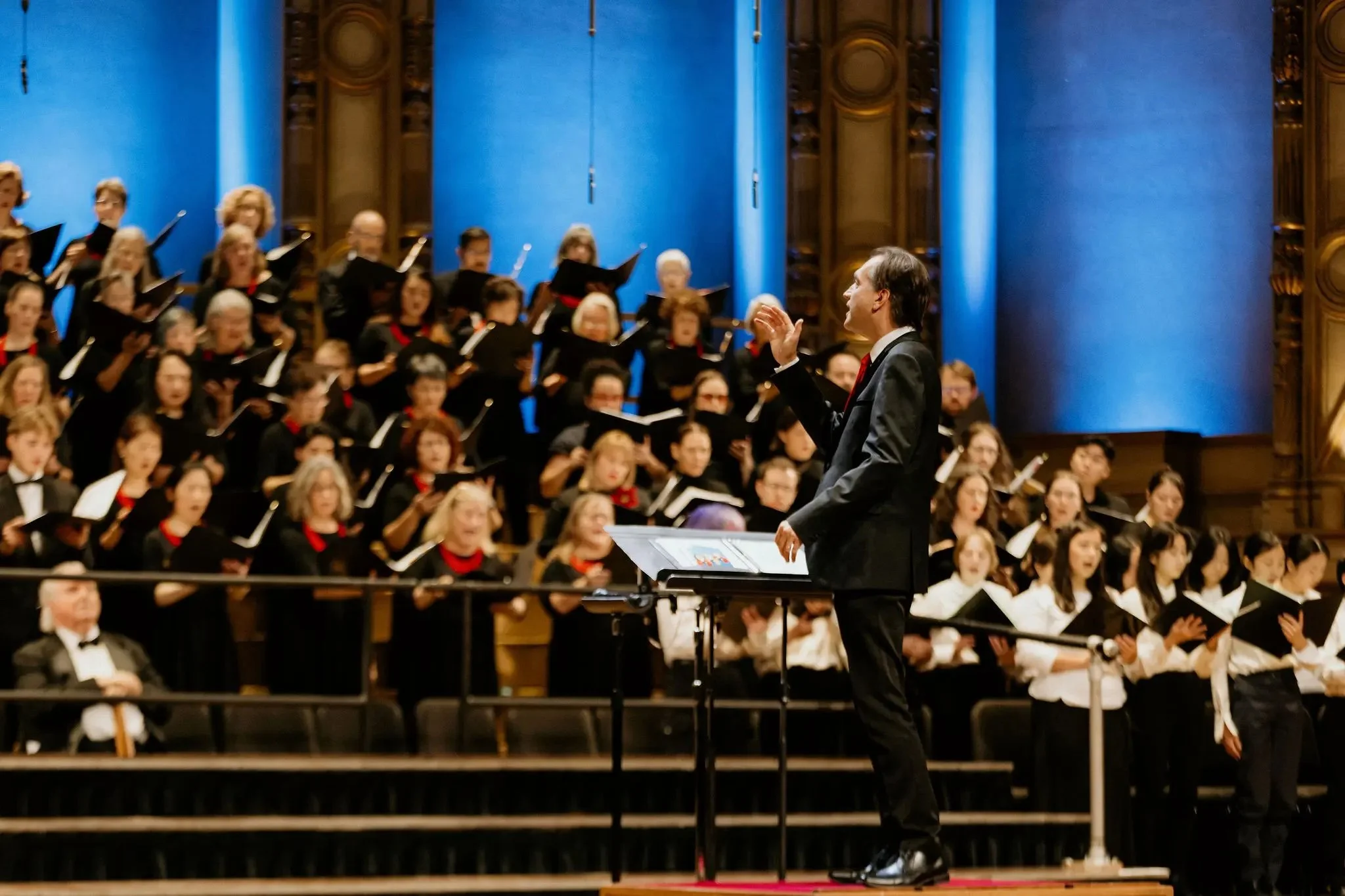The Marrow builds hypnotic rhythms around Gord Grdina's love of the lute-like oud
Jazz improvisation meets historical Middle Eastern forms in group formed with percussionist Hamin Honari, cellist Hank Roberts, and bassist Mark Helias
Gord Grdina (right) and The Marrow.
BlueShore Theatre at CapU presents Gordon Grdina and The Marrow, with guest Fathieh Honari, at the BlueShore Financial Centre for the Performing Arts on Monday, January 30
THERE WAS ONE QUESTION I forgot to ask in my recent telephone conversation with Vancouver musician Gordon Grdina: “How many bands are you in, anyway?”
The answer might not be that easy to determine. A quick look at Grdina’s website shows that he’s recorded with at least a dozen different units, including trio, quartet, and septet configurations under his own name; a collaborative trio with New York City–based bassist Mark Helias and pianist Matthew Shipp; an avant-Arabic big band, Haram; the Twain, which features the Japanese poet, singer, and multi-instrumentalist Kōichi Makigami; and Square Peg, a transcontinental collaboration with Americans Mat Maneri on viola and Shahzad Ismaily on electric bass, plus German drummer Christian Lillinger.
You get the picture: the 45-year-old Grdina is not only brimming over with adventurous ideas on acoustic guitar, electric guitar, and oud, he’s in possession of one of the best-stocked digital Rolodexes in contemporary music. Asking him to pick a favourite project would be an exercise in futility: how do you pick your favourite child?
I’m not so diplomatic, however. Aside from Haram, which might be the most exciting group currently performing in Vancouver, I’ve got a strong fondness for The Marrow, another collaborative venture, this time with Helias, cellist Hank Roberts, and Persian-Canadian percussionist Hamin Honari. The band’s two recordings for the Songlines imprint, Ejdeha and Safar-e-Daroon, strike a perfect balance between improvisational freedom, traditional Middle Eastern forms, and postmodern composition. They’re also sophisticated and wildly impassioned, qualities that are not always easy to merge.
Perhaps tellingly, Safar-e-Daroon can be translated as “inner journey”, and it’s likely that Grdina’s personal path has involved finding a way to use his fiery nature—he first emerged as the loudest and most rock-based of local jazz guitarists—in the service of beautiful and even occasionally contemplative music. At least that’s what the sounds on Safar-e-Daroon suggest. Opening with the propulsive title track and closing with the tender “Gabriel James”, which was inspired by an early-morning jam session with his infant son, Grdina leads his listeners through a singularly beautiful sonic landscape. The musicians’ mutual respect is readily audible, as is their questing spirit.
“Where the music comes from is sort of like a personal inner journey,” Grdina says. “I’ll think of a project or a band, and then let what happens next develop over time. The first piece will come and then you’ll sort of figure out, musically, what’s happening. Sometimes that’s about connecting things, like ‘Oh, this is an idea that comes out of that.’ And sometimes it’s completely different, because it’s like ‘Well, we’ve done that. What else can we do?’ And then that’s the journey.”
The Marrow is specifically shaped around Grdina’s love of the oud. He’s studied with Middle Eastern masters of the lute-like instrument, and has been playing it since he was a teenager. With that as the focus, The Marrow naturally required Honari’s services; the two have been playing together for almost 20 years and display an impeccable intuitive rapport. “Hamin’s always listening to everything, and his development has been all over the map,” Grdina says. “He’s playing more traditional music now than ever, but then we’ve also done two completely free records with [saxophonist] Ivo Perelman, and then a ton of improv gigs with different musicians. Originally, he was not interested in that music at all, but Persian percussion has always had this sense of rhythmic and melodic freedom in it, so it just makes logical sense to move in these different directions, and I’ve heard that developing with him pretty naturally.”
Various violinists—including Maneri, Jesse Zubot, and Mark Feldman—have passed through The Marrow’s ranks, but the band has recently returned to its original shape: a beautifully collegial quartet. Bassist Helias has played a lot of Arab-inflected music with Lebanese singer and oud player Marcel Khalife, but Grdina says he has more room to roam in this less restrictive format. “He kind of brings everything that he does, like his history of being able to really lay it down and just groove,” the bandleader explains. “He doesn’t necessarily do that all the time, but there’s a lot of it, and his ability to just lock in with Hamid is fantastic.”
Roberts will also have more space to shine in a quartet. Best known for his work with guitar genius Bill Frisell—the two have sustained an on-again, off-again relationship for 40 years—he has an unusually curious mind and a warm sensibility. “Like everybody else, he can go in a whole bunch of different directions,” Grdina says. “And getting to play with him on all these tours has been really incredible, because it’s allowed me to hear more of how he is personally, and how that comes through in the music. He’s incredibly supportive of everything that’s happening, which is what you want in the people you play with—and when he gets the chance, he gets to a really deep place.”
With this tour, the focus will be on the new material Grdina is writing for The Marrow’s third release, although acclaimed singer Fathieh Honari—who also happens to be Hamin Honari’s mother—will sit in on some more traditional Persian compositions. Even there, the music will mix jazz improvisation with historical forms, as Grdina is not content to retrace old paths. “When this band started, it felt more traditional,” he says. “But it’s opening up into freer and freer avenues—sort of a delicate freedom, like chamber improvisation.”
The journey will continue, in beautiful and surprising ways.













